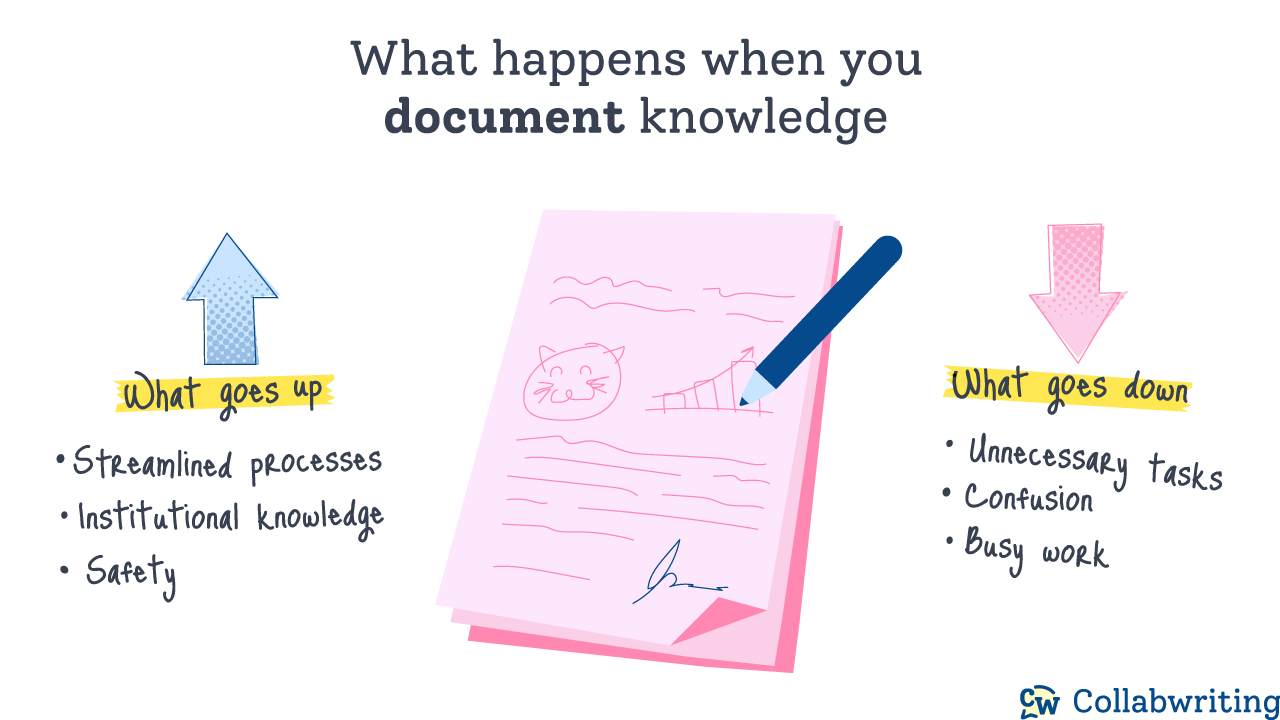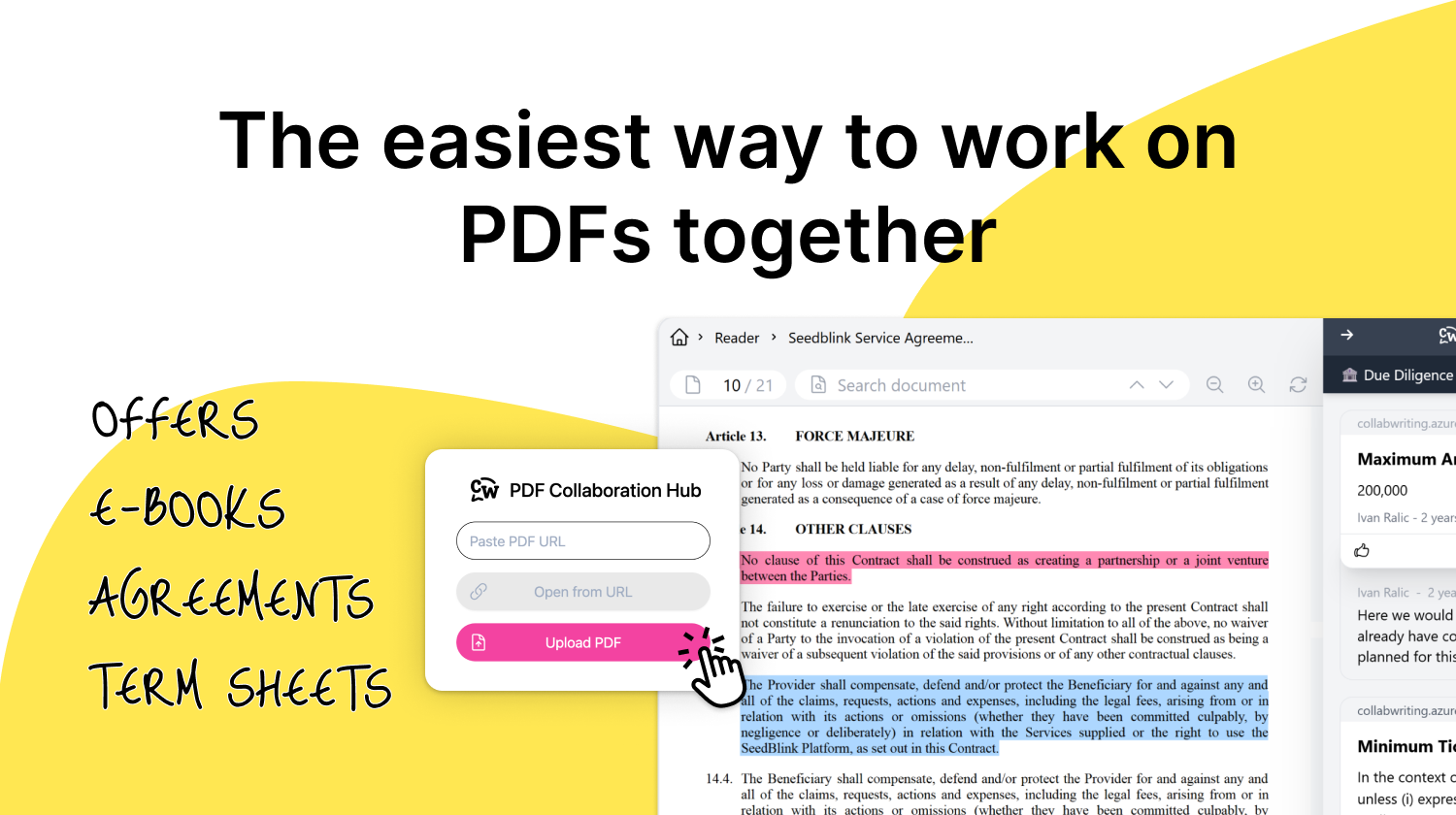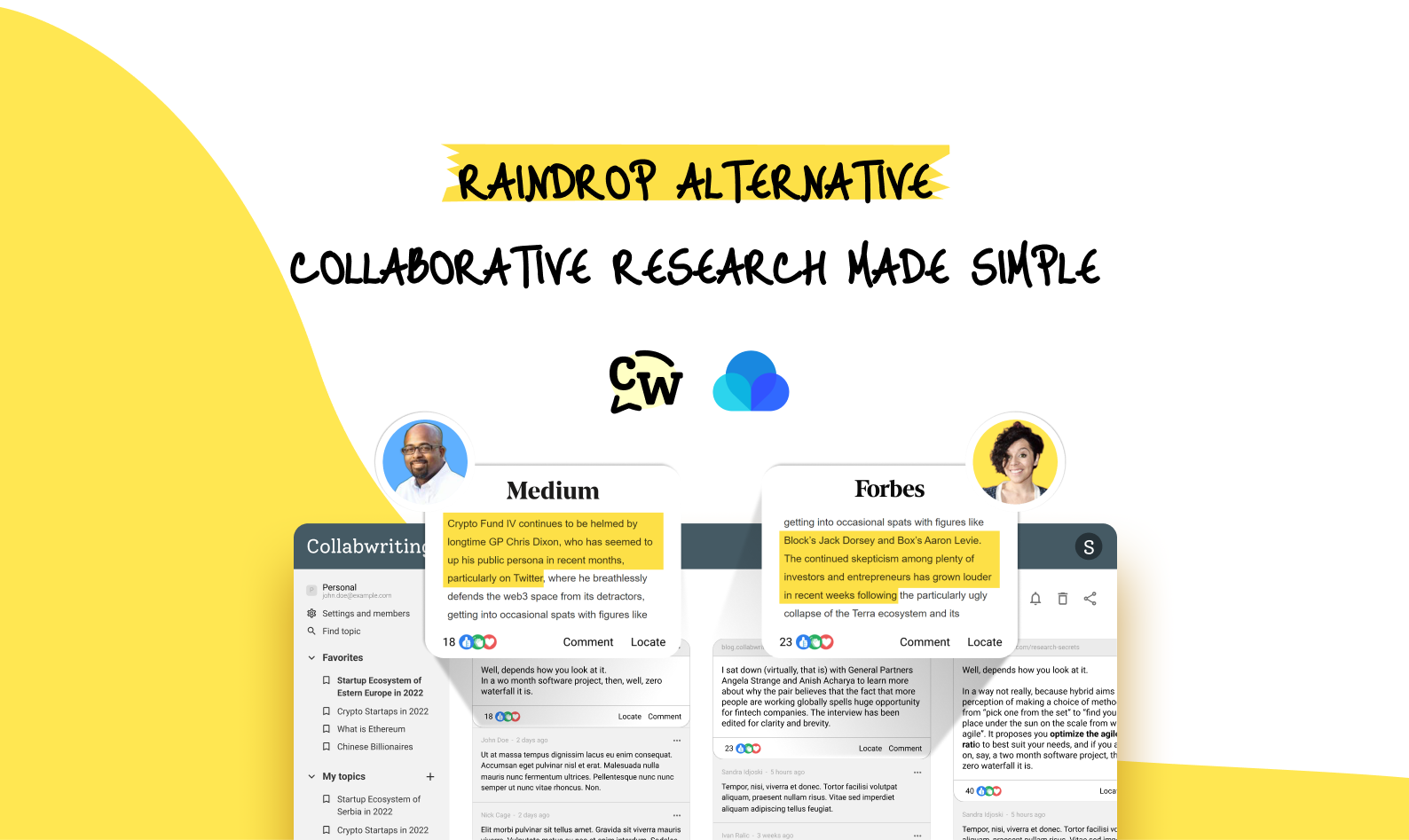Have you ever thought about what would happen if one of your key employees suddenly won the lottery and quit? How can you make sure that all the important skills and knowledge they possess don't disappear with them?
To tackle this you must have a way of capturing and sharing important know-how. By creating a system to capture and pass on individual expertise, you can be better prepared for unexpected situations.
Even though the odds of winning the lottery are low, there's always a chance your employee might leave tomorrow for a better-paying job or better conditions.
On the other hand, companies that don't share knowledge face higher risks of inefficiency and wasting time.
To put it simply, here are three main ways the lack of shared knowledge wastes employees' time:
- Waiting for information: Do you often wait for a colleague with specific knowledge to give you what you need to move forward with your work? Recent studies suggest that workers spend over 5 hours a week waiting for necessary information. With a good knowledge-sharing system in place, this waiting time could be significantly reduced.
- Avoidable research: Individual research is good for learning and professional growth, but only sometimes needed. Imagine how much time employees could save if the information they need is easily accessible, instead of searching for already available answers.
- Doing the same work: A common problem when knowledge isn't shared is doing the same work twice. Having a clear place for shared info could stop this from happening. A good system for organizing knowledge could really cut down on these problems, maybe even stop them altogether.
But let's start from the beginning.
Why Team Knowledge Matters [2025]
Imagine one of your key employees suddenly leaves for a better-paying job—or, as unlikely as it sounds, wins the lottery. Without a system to capture their expertise, all that valuable knowledge disappears overnight.
Studies show that businesses lose $31.5 billion each year due to poor knowledge sharing. On a smaller scale, employees often spend over 5 hours a week waiting for information, searching for existing answers, or duplicating work.
The solution?
A structured approach to knowledge sharing that captures individual expertise and spreads it across your team.
What Is Knowledge Sharing?
Simply put, knowledge sharing is when people share information with each other.
The word "exchange" suggests that both parties benefit, and that's what you should aim for if you want to have a productive and efficient team.
Here’s what it should look like:
- Person A shares what they know with someone who could benefit.
- Person B helps Person A understand things better.
- Both walk away feeling more informed and prepared. Together, they improve skills, processes, and overall team performance.
When done right, knowledge sharing creates a continuous learning cycle where improved processes spread naturally across the team.

Knowledge Sharing Secrets - Strategies for building Unicorn team
Businesses lose a whopping $31.5 billion each year because they don't share knowledge and resources with their employees, as several studies have found. This effect is even more in small teams where each member plays a crucial role.
How to Share Knowledge with Team Members - 3 Examples
John J. Murphy, author of Pulling Together: 10 Rules for High-Performance Teamwork says:
Each individual has unique gifts, talents, and skills. When we bring them to the table and share them for a common purpose, it can give companies a real competitive advantage.
Sharing individual knowledge is essential for collective growth. Here are three main ways to share individual knowledge effectively:
1) Knowledge Base
A digital knowledge base acts as a central repository for your team. It can include project documentation, training materials, company policies, and more.
Modern tools make it easy to set up, maintain, and search so that no one wastes time hunting for information.
2) Internal Education
Internal education within organizations can be highly effective compared to external training.
Team members have shared experiences, speak a common language, and can easily identify what information would benefit others.
Methods like presentations, workshops, and technology-focused clubs are commonly used for internal education. You can tailor these approaches to fit your workplace and provide incentives and rewards for employees who actively share knowledge.
3) Mentoring
Mentoring lets team members share knowledge through hands-on work.
Observing experienced colleagues helps employees learn faster and apply skills effectively.
Structuring mentoring during onboarding and ongoing development ensures critical knowledge is passed on. A culture of knowledge sharing boosts team collaboration, efficiency, and continuous learning, benefiting both individuals and the organization.
Creating a culture of knowledge-sharing takes time and effort, but the rewards are worth it.
7 Practical Ways to Boost Knowledge Sharing
If you aim to prioritize knowledge sharing in your team, here are a few steps you should follow.
Document processes in a better way
Documenting knowledge used to be the hardest part of sharing it.
Make it easier by using tools that simplify documentation, automate tasks, and speed up processes. Choose a solution that fits your team and makes contributing feel effortless and rewarding.
Use tools that make documenting enjoyable and efficient.
There are plenty of options out there, so pick the one that suits you and your team the best.

Understand your team's learning preferences
Ensure that your team actually uses your new documentation by understanding how they prefer to learn, as well as what methods they don't find effective.
Tailor your documentation to match their preferences, ensuring it's both effective and well-received.
Streamline access to your institutional knowledge
After you have user-friendly documentation, the next step is to ensure it's easily accessible.
Gathering all resources that answer common questions into a company knowledge base might require some initial work, but it'll save you time in the long term.
A single hub saves hours of searching.
Learn more here⬇️

Identify and tackle any additional barriers to knowledge sharing
Ask yourself: What else stops your team from sharing their knowledge?
Or even conduct a survey. The responses might surprise you!
You might find that people:
● Prioritize other tasks over sharing knowledge
● See knowledge sharing as not part of their job
● Doubt if leadership values knowledge-sharing
● Fear the negative consequences of sharing
● Lack of incentives to document their work
● Don't see any drawbacks to not sharing
● Worry about being replaceable
● Think non-technical teammates won't appreciate their ideas
● Feel they need special skills to share what they know
● Lack of confidence in participating in knowledge-sharing
● Believe they're already doing enough
Lead by example
To encourage knowledge sharing, start with upper management leading by example. Make it a core value of the company, openly discuss successes and failures, and include it in performance reviews.
Promote learning through regular team discussions, project insight meetings, and various platforms like lunch sessions or virtual events.
Invest in tools that simplify the process of capturing employee skills and knowledge.
You won't regret it when you see the benefits!
Set knowledge-sharing goals together
Forget about hierarchy and work together to set knowledge-sharing goals.
Consider asking these questions:
- What have we documented well so far?
- Where are we at risk of losing important knowledge?
- Who are the key experts in our organization?
- What unique skills do they possess?
- How does it impact others when this knowledge isn't shared?
- What resources do we need to capture and share this information?
- What tools can help us share information more effectively?
- How can we centralize knowledge to break down information barriers?
- What's needed for everyone to embrace a culture of learning?
See how knowledge sharing impacts the business
It's often said, "If you can't measure it, you can't manage it."
Think about what you can measure about knowledge sharing.
How does improved documentation and broader institutional knowledge affect:
• Sales and revenue
• Product development and innovation
• Customer satisfaction and Net Promoter Scores (NPS)
• Employee satisfaction and retention
• Return on investments in technology
The Long-Term Benefits of Knowledge Sharing
A culture of knowledge sharing creates:
- Stability, continuity, and consistency across your team.
- Faster onboarding and training for new employees.
- Reduced duplication of work and knowledge loss.
- Enhanced collaboration, innovation, and overall productivity.
When everyone knows how to record, access, and improve knowledge, your team can focus on speed and scale, not hunting for missing information.
Tool for Collaborative Insights Gathering & Knowledge Sharing
The right tools can transform how your team captures and shares knowledge.
Platforms like Collabwriting let you collect, organize, and collaborate on important information all in one place.
Team members can highlight insights from online articles, PDFs, documents, and reports and save them to a shared workspace that’s searchable and easy to access.
With features like comments, annotations, and real-time collaboration, teams can discuss, refine, and expand knowledge together.

Collabwriting - Shareable Notes on Web Pages and PDFs
Collabwriting allows you to gather all your online sources in one place. No more endless scrolling, no more lost insights, just simple, structured knowledge at your fingertips.
Just highlight, save, and collaborate with anyone on any content you find online.
Centralizing information this way not only reduces time spent searching but also prevents knowledge loss, improves productivity, and fosters a culture of continuous learning and collaboration.
Whether for individuals, teams, or the entire company, success depends on how quickly you can capture, share, and use knowledge.
To stay competitive, focus on:
- Building a culture of knowledge sharing where everyone contributes and learns.
- Streamlining documentation processes to make recording and finding information easy.
- Understanding that knowledge sharing is ongoing, not a one-time task.
FAQ
What is knowledge sharing?
Knowledge sharing is the exchange of information, expertise, experiences, and insights between individuals or groups within an organization. It aims to benefit both parties and enhance overall productivity and efficiency.
Why is knowledge sharing important?
- Reduces waiting times for information.
- Minimizes the need for redundant research.
- Prevents duplication of efforts.
- Fosters collaboration and innovation.
- Enhances employee empowerment and engagement.
How does a lack of shared knowledge waste employees' time?
- Waiting for information: Employees often spend over 5 hours a week waiting for necessary information from colleagues.
- Avoidable research: Time is wasted searching for information that is already available within the organization.
- Duplicated work: Employees might redo work because they are unaware that it has already been done.
What are effective ways to share individual knowledge?
- Knowledge base: A centralized digital archive containing educational materials, project documentation, and employee records.
- Internal education: Training sessions, workshops, and presentations tailored to the organization’s specific needs.
- Mentoring: Practical knowledge sharing through collaboration and observing experienced team members in action.
How can organizations document processes effectively?
- Understand team learning preferences and tailor documentation accordingly.
- Ensure documentation is easily accessible by consolidating resources into a knowledge base.
- Continuously update and maintain documentation to keep it relevant and useful.
What barriers to knowledge sharing might exist, and how can they be addressed?
- Lack of time.
- The perception that knowledge sharing is not part of the job.
- Fear of negative consequences.
- Lack of incentives.
Address these barriers by:
- Conducting surveys to identify specific issues.
- Providing training and incentives.
- Encouraging a culture of knowledge sharing through leadership examples.
What tools can help improve knowledge sharing?
Invest in AI-powered knowledge management systems, enterprise search tools, and collaboration platforms that simplify the process of capturing and accessing information.
How can the impact of knowledge sharing be measured?
Measure the impact of knowledge sharing by tracking improvements in:
- Sales and revenue.
- Product development and innovation.
- Customer satisfaction.
- Employee satisfaction and retention.
- Return on investment in technology.
What steps can be taken to start a knowledge management initiative?
- Craft a pilot: Implement new processes with a small group and gather feedback.
- Educate the team: Provide ongoing training on the knowledge management system.
- Use the right technology: Implement AI and other tools to facilitate knowledge sharing.
- Promote teamwork: Encourage collaboration and cross-functional projects.
What are the long-term benefits of a culture of knowledge sharing?
A culture of knowledge-sharing brings stability, continuity, efficiency, and innovation. It improves team collaboration, reduces inefficiencies, and ensures that valuable information is always accessible.
Which tool can help me document and share knowledge within the team?
Collabwriting - A simple tool that helps you find, share, and collaborate on stuff you find online.





![The Best Tool for Collaborative Research in Content Marketing Teams [2026]](/content/images/2025/12/image--5-.png)

![5 Tools Marketers Use to Organize Research - Compared [2026]](/content/images/2025/11/cover-4-1.png)

![Build Credibility in Research: Smart Way to Verify Information and Track Sources Easily [2025]](/content/images/2025/10/covers-for-blog--7--1.png)

![How Marketers Can Turn LinkedIn Content into Collaborative Research [2025]](/content/images/2025/10/covers-for-blog--8-.png)
![Best Readwise Alternative for Personal & Team Research [2026]](/content/images/2025/09/Frame-814--3-.png)

